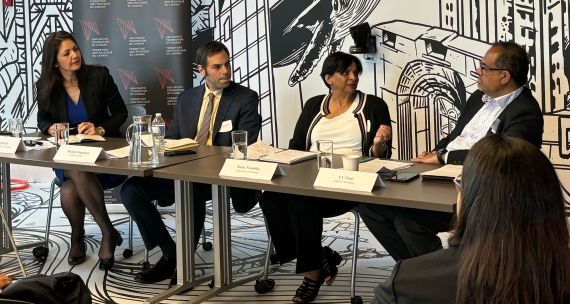"Under-promise and over-deliver" is usually a winning formula when it comes to politics and state visits. Prime Minister Justin Trudeau's most recent visit to China seems to have been based on the opposite premise.
Another basic rule for trade negotiations and foreign visits is "avoid surprises." This government doesn't appear to have embraced that one, either. What is going on?
To be fair, the official announcement of the visit to China made no mention of bilateral negotiations, and just before Mr. Trudeau's departure officials and International Trade Minister François-Philippe Champagne tried to lower expectations that the visit would result in an announcement of the launch of trade talks with Beijing.
Those efforts were not very convincing, however — or at least they did not convince those who were hoping that the time had finally arrived to move forward. It is now apparent that significant gaps still exist between Canada and China in terms of what an agreement will cover, but the optimism that prevailed before the trip belied these differences.
It also seems that the Chinese were blindsided by Canada's firm insistence on the inclusion of so-called "progressive" elements in the agreement (labour, environment, gender, governance) as well as disciplines on State Owned Enterprises (SOEs). If these were last-minute additions, springing them on Chinese officials was a good way to fail.
Canada's push to include at least some of these factors into an agreement is completely legitimate and is to be commended. The problem may be that Canada's bottom line was not properly communicated to the Chinese in advance.
Perhaps Mr. Trudeau's team thought that, under the impetus of an official visit, the Chinese would compromise. Perhaps the Chinese thought that, in their desire to have concrete "deliverables," the Canadian side would compromise — or perhaps they thought that the deal was done and were caught by surprise by additional demands.
Neither side blinked, and the outcome was embarrassing for both China and Canada. "Deliverables" from these kinds of visits are almost always pre-baked; the leaders just have to add the icing. In this case, it's clear that several key ingredients were still missing from the cake.
What happened in Beijing smacks of the off-again, on-again announcement of an agreement in principle for the revised Trans-Pacific Partnership (TPP), now to be known as the "Comprehensive and Progressive TPP", in Vietnam last month. Japan and Australia in particular were caught by surprise at what appeared to have been last-minute Canadian demands for "progressive trade agenda" changes, along with other substantive issues like auto rules of origin.
Again, Canadian objectives were not the problem. Catching negotiating partners by surprise — that was the problem.
Sending mixed signals to our trading partners is not the smartest way to achieve our objectives. It may play well at home, where the government can portray itself as "standing up for Canadian values," but we can stick to our principles and objectives without unnecessarily stepping on the toes of those with whom we seek to deal by appearing patronizing and amateurish.
The "progressive trade agenda" is an important part of the government's plan to combat populist anti-globalization forces, but we need to be careful not to overplay our hand and overload "progressive trade" with unachievable objectives. When it comes to trade agreements, it's important to catch the wave before it passes by. Time is the enemy.
We still have a very difficult NAFTA negotiation to conclude. The U.S. has been transparent about its objectives, as unreasonable as some of them are; to its credit, Canada has been very clear about which of those are deal-breakers. The same "lack of surprises" approach could serve us well in our dealings with China and our TPP partners.
This piece first appeared in iPolitics on December 15, 2017.




